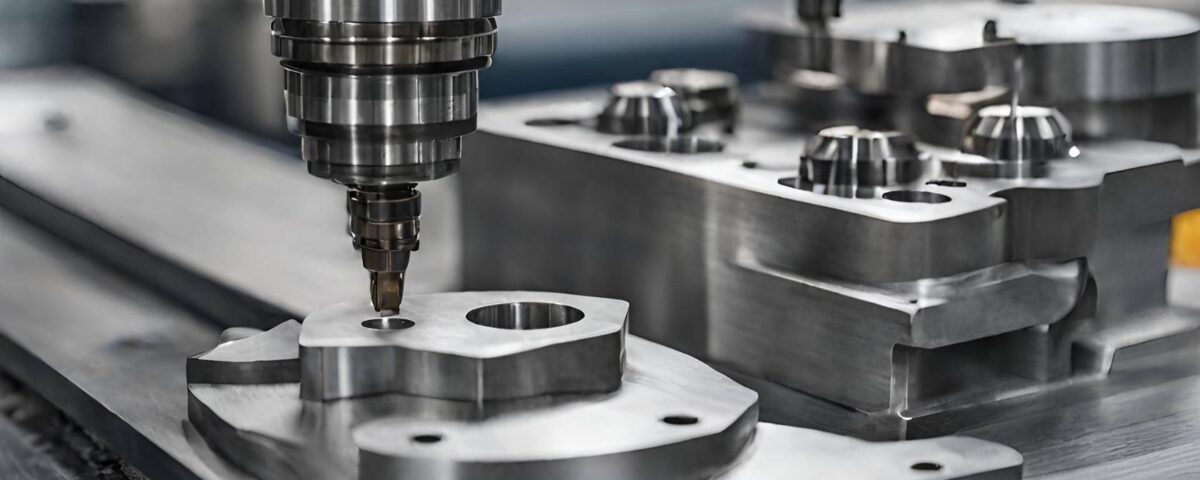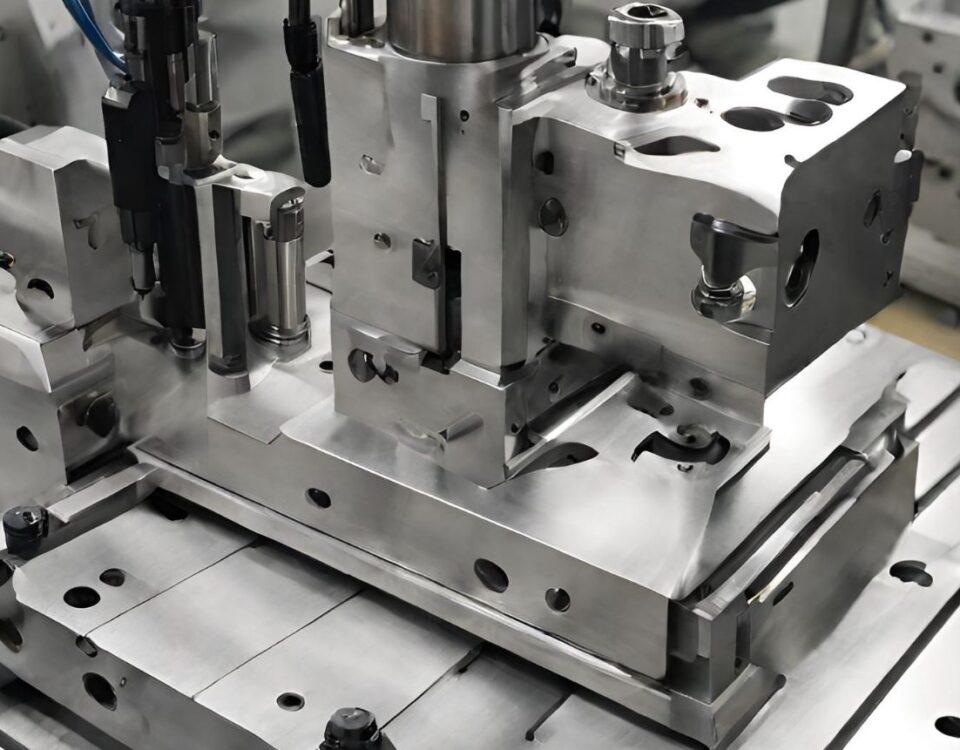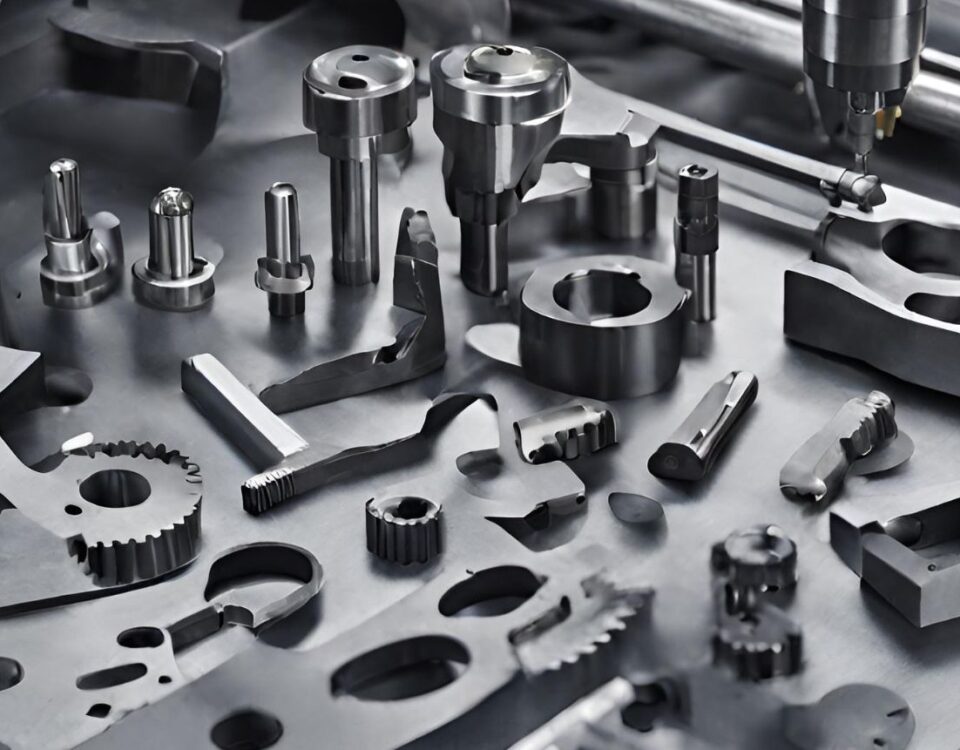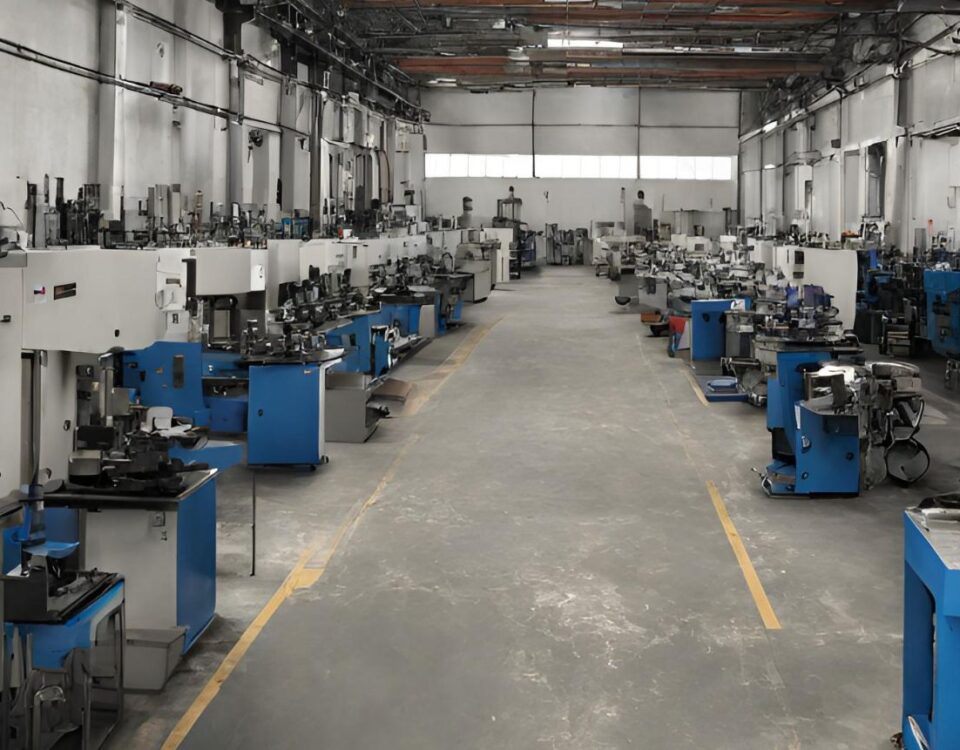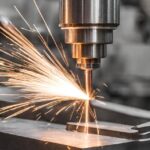
Exploring the Intersection of Machining and Fabrication
23 February 2024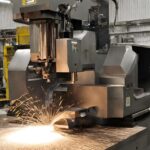
The Art of Precision: Mastering Machining and Fabrication Techniques
29 February 2024Mastering the Art of Precision Machining: Unleashing the Power of Accuracy in Manufacturing
Experience the revolution in manufacturing with precision machining. In today's competitive landscape, accuracy is paramount. Precision machining is the key to unlocking the power of accuracy in the manufacturing industry.
From aerospace and automotive to medical and electronics, precision machining plays a crucial role in producing high-quality components. By utilizing advanced techniques and cutting-edge technology, manufacturers can achieve exceptional precision and tight tolerances, ensuring the flawless performance of their products.
But what exactly is precision machining? It's the process of shaping and fabricating parts to incredibly tight specifications, using specialized tools and machinery. This meticulous approach allows for consistent and repeatable results, enabling manufacturers to meet the exacting demands of their clients.
Not only does precision machining ensure superior quality, but it also enhances efficiency and reduces the risk of errors. With precise control over every aspect of the manufacturing process, manufacturers can optimize productivity and deliver products that surpass customer expectations.
At Anebon, we are masters of precision machining. Join us as we delve into the art and science of achieving accuracy in manufacturing. Experience the power of precision and unlock new opportunities for your business.
Importance of Accuracy in Manufacturing
In the highly competitive manufacturing industry, accuracy holds the key to success. The ability to produce components to exact specifications is crucial for delivering products that meet the highest standards of quality and performance. Whether it's a critical aerospace component or a delicate medical device, precision machining ensures that every part is manufactured with meticulous attention to detail.
Achieving accuracy in manufacturing offers several key benefits. Firstly, it ensures consistent product quality, reducing the risk of defects or malfunctions. This not only enhances customer satisfaction but also protects the reputation of manufacturers in the market.
Secondly, precision machining improves efficiency by minimizing wastage of materials and resources. With precise control over the manufacturing process, manufacturers can optimize production and minimize errors, resulting in cost savings and increased output.
Lastly, accuracy in manufacturing enables manufacturers to meet the strict requirements of various industries. From the tight tolerances of aerospace components to the intricate specifications of medical devices, precision machining ensures that every part meets the necessary standards, enabling manufacturers to thrive in specialized sectors.
In summary, accuracy in manufacturing is essential for maintaining quality, improving efficiency, and meeting industry requirements. Precision machining is the key to achieving this level of accuracy, enabling manufacturers to stay ahead in today's competitive landscape.
Precision Machining Techniques and Tools
Precision machining involves a range of techniques and tools that enable manufacturers to shape and fabricate parts to exact specifications. These techniques and tools are designed to ensure accuracy, repeatability, and consistency in the manufacturing process.
One of the most commonly used precision machining techniques is computer numerical control (CNC) machining. CNC machines use pre-programmed instructions to control the movement of cutting tools, resulting in precise and repeatable cuts. This technology allows manufacturers to achieve complex shapes and tight tolerances with ease.
Another key technique in precision machining is turning. Turning involves rotating a workpiece while a cutting tool removes material to create the desired shape. This technique is commonly used for producing cylindrical or conical components with high accuracy.
In addition to these techniques, precision machining relies on a variety of specialized tools. These tools include cutting tools like end mills, drills, and reamers, as well as measuring tools like micrometers and calipers. These tools are designed to provide precise control over the manufacturing process, ensuring that every part meets the required specifications.
Overall, precision machining techniques and tools are essential for achieving accuracy in manufacturing. By leveraging these techniques and tools, manufacturers can produce high-quality components that meet the most demanding requirements.
Common Challenges in Precision Machining
While precision machining offers numerous benefits, it also presents several challenges that manufacturers must overcome to achieve optimal results. Understanding and addressing these challenges is crucial for mastering the art of precision machining.
One common challenge in precision machining is maintaining tight tolerances. As components become smaller and more intricate, achieving the required tolerances becomes increasingly difficult. Factors such as machine calibration, tool wear, and thermal expansion can all impact the accuracy of the final product. Manufacturers must implement rigorous quality control measures and regularly monitor their machining processes to ensure that tolerances are met consistently.
Another challenge in precision machining is material selection. Different materials have different properties and respond differently to machining processes. Some materials, like aluminum, are easier to machine and offer good accuracy, while others, like hardened steel, can be more challenging due to their hardness and toughness. Manufacturers must choose the right materials for their applications and adjust machining parameters accordingly.
Additionally, achieving smooth surface finishes can be a challenge in precision machining. Factors like tool selection, cutting speeds, and feeds can affect the final surface quality of machined parts. Manufacturers must experiment with different cutting parameters and surface finishing techniques to achieve the desired results.
Overcoming these challenges requires expertise, experience, and a commitment to continuous improvement. Manufacturers must invest in training their machinists, optimizing their processes, and staying up-to-date with the latest advancements in precision machining technology.
Benefits of Precision Machining
Precision machining offers a wide range of benefits for manufacturers across various industries. By embracing the power of accuracy, manufacturers can unlock new opportunities and gain a competitive edge in the market.
One of the key benefits of precision machining is improved product quality. By ensuring that every part is manufactured to exact specifications, manufacturers can deliver products that meet the highest standards of quality and performance. This not only enhances customer satisfaction but also builds trust and loyalty.
Another benefit of precision machining is increased efficiency. With precise control over the manufacturing process, manufacturers can optimize production, minimize wastage, and reduce the need for rework. This leads to cost savings, increased output, and improved overall operational efficiency.
Precision machining also enables manufacturers to expand into new markets and industries. By mastering the art of accuracy, manufacturers can meet the stringent requirements of specialized sectors such as aerospace, medical, and electronics. This opens up new avenues for growth and diversification.
Furthermore, precision machining allows manufacturers to stay ahead of the competition. In today's fast-paced market, customers demand high-quality products with shorter lead times. By leveraging precision machining techniques and tools, manufacturers can meet these demands, differentiate themselves from competitors, and secure a competitive advantage.
In conclusion, precision machining offers numerous benefits, including improved product quality, increased efficiency, market expansion, and a competitive edge. By embracing the power of accuracy, manufacturers can position themselves for success in today's dynamic manufacturing landscape.
Precision Machining in Different Industries
Precision machining is a versatile manufacturing process that finds applications across various industries. Let's explore how precision machining plays a crucial role in some key sectors:
Aerospace
In the aerospace industry, precision machining is essential for producing components that meet the strict requirements of safety, performance, and weight. From engine parts to aircraft structures, precision machining ensures that every component is manufactured with the utmost accuracy and reliability.
Automotive
In the automotive industry, precision machining is used to produce critical components such as engine parts, transmissions, and braking systems. By achieving tight tolerances and high-quality finishes, precision machining ensures that these components perform reliably and contribute to the overall efficiency and safety of vehicles.
Medical
In the medical industry, precision machining is indispensable for manufacturing devices and instruments that require exceptional accuracy and reliability. From surgical implants to diagnostic equipment, precision machining enables the production of intricate and complex medical components that meet the strictest quality standards.
Electronics
In the electronics industry, precision machining is used to manufacture components such as connectors, circuit boards, and housings. The miniaturization of electronic devices demands high precision and tight tolerances, which can be achieved through precision machining techniques.
These are just a few examples of how precision machining is utilized in different industries. Regardless of the sector, precision machining plays a crucial role in producing high-quality components that meet the specific requirements of each industry.
Key Considerations in Precision Machining Process
To achieve optimal results in precision machining, manufacturers must consider several key factors throughout the manufacturing process. These considerations help ensure accuracy, consistency, and efficiency in every step of the machining journey.
Firstly, material selection is critical. Different materials require different machining parameters and tooling approaches. Manufacturers must choose the right material for the application and understand its machinability to optimize the machining process.
Secondly, tool selection and tool life management are essential. Choosing the right tools and maintaining them properly can significantly impact the accuracy and efficiency of the machining process. Manufacturers must consider factors such as tool material, tool geometry, and cutting speeds to achieve the best results.
Thirdly, proper machine setup and calibration are crucial for achieving accuracy in precision machining. Machines must be properly aligned, and their axes must be calibrated to ensure precise movement and positioning. Regular machine maintenance and calibration are essential for consistent results.
Furthermore, implementing robust quality control measures is vital in precision machining. Manufacturers must establish inspection protocols, perform regular measurements, and monitor key process parameters to ensure that parts meet the required specifications.
Finally, continuous improvement and ongoing training are essential for mastering the art of precision machining. Manufacturers should encourage their machinists to stay updated with the latest advancements, attend training programs, and share best practices to enhance their skills and knowledge.
By considering these key factors, manufacturers can optimize the precision machining process, achieve superior results, and stay ahead in today's competitive market.
Tips for Mastering the Art of Precision Machining
Mastering the art of precision machining requires a combination of technical expertise, experience, and attention to detail. Here are some tips to help manufacturers unlock the full potential of precision machining:
1. Invest in advanced machining technology: Upgrading to modern CNC machines and advanced tooling systems can significantly enhance precision and efficiency in manufacturing. Embrace the power of automation and digitalization to optimize your processes and achieve superior results.
2. Focus on training and skill development: Provide your machinists with regular training opportunities to enhance their skills and knowledge in precision machining. Encourage them to stay updated with the latest industry trends and technologies.
3. Implement robust quality control measures: Establish rigorous quality assurance protocols to ensure that every part meets the required specifications. Perform regular inspections, measurements, and audits to maintain high standards of quality.
4. Embrace a culture of continuous improvement: Encourage your team to think creatively, identify areas for improvement, and implement innovative solutions. Regularly review and optimize your processes to enhance efficiency and accuracy.
5. Collaborate with suppliers and partners: Work closely with your suppliers and partners to leverage their expertise and access the latest advancements in precision machining technology. Build strong relationships to drive innovation and achieve mutual success.
By following these tips, manufacturers can master the art of precision machining, unlock new opportunities, and achieve unparalleled accuracy and efficiency in their operations.
Advanced Precision Machining Technologies
As precision machining continues to evolve, several advanced technologies are revolutionizing the industry. These technologies offer new possibilities and capabilities for manufacturers seeking to achieve even higher levels of accuracy and efficiency.
One such technology is additive manufacturing, commonly known as 3D printing. Additive manufacturing enables the production of complex geometries and intricate parts that would be challenging or impossible to achieve with traditional machining techniques. This technology allows manufacturers to create prototypes, customized components, and small-batch production runs with exceptional precision.
Another advanced technology in precision machining is the use of high-speed machining (HSM). HSM utilizes high spindle speeds and advanced cutting strategies to remove material rapidly while maintaining accuracy and surface finish. This technology enables manufacturers to achieve shorter cycle times and increased productivity without compromising quality.
Furthermore, the integration of artificial intelligence (AI) and machine learning (ML) is transforming precision machining. AI-powered machining systems can analyze vast amounts of data, optimize cutting parameters in real-time, and make intelligent decisions to improve accuracy and efficiency. ML algorithms can predict tool wear, optimize tool paths, and identify potential issues before they occur, enabling manufacturers to achieve consistent results and reduce downtime.
Additionally, advanced metrology and inspection technologies are enhancing quality control in precision machining. High-precision coordinate measuring machines (CMMs), optical measurement systems, and non-contact inspection techniques allow manufacturers to perform comprehensive inspections and measurements with exceptional accuracy and speed.
These advanced precision machining technologies are revolutionizing the industry, offering manufacturers new possibilities for achieving accuracy, efficiency, and innovation. By embracing these technologies, manufacturers can stay at the forefront of the precision machining landscape and unlock new opportunities for growth.
Conclusion
Precision machining is the art and science of achieving accuracy in manufacturing. From aerospace and automotive to medical and electronics, precision machining plays a crucial role in producing high-quality components that meet the exacting demands of various industries.
By embracing precision machining techniques and technologies, manufacturers can unlock the power of accuracy and achieve superior product quality, increased efficiency, market expansion, and a competitive edge. However, mastering the art of precision machining requires a deep understanding of the process, attention to detail, and continuous improvement.
At Anebon, we are masters of precision machining. With our expertise, state-of-the-art facilities, and commitment to excellence, we help our clients unleash the power of accuracy in manufacturing. Join us on this exciting journey and experience the transformative impact of precision machining on your business. Contact us today to learn more about our precision machining services and how we can help you achieve your manufacturing goals.

